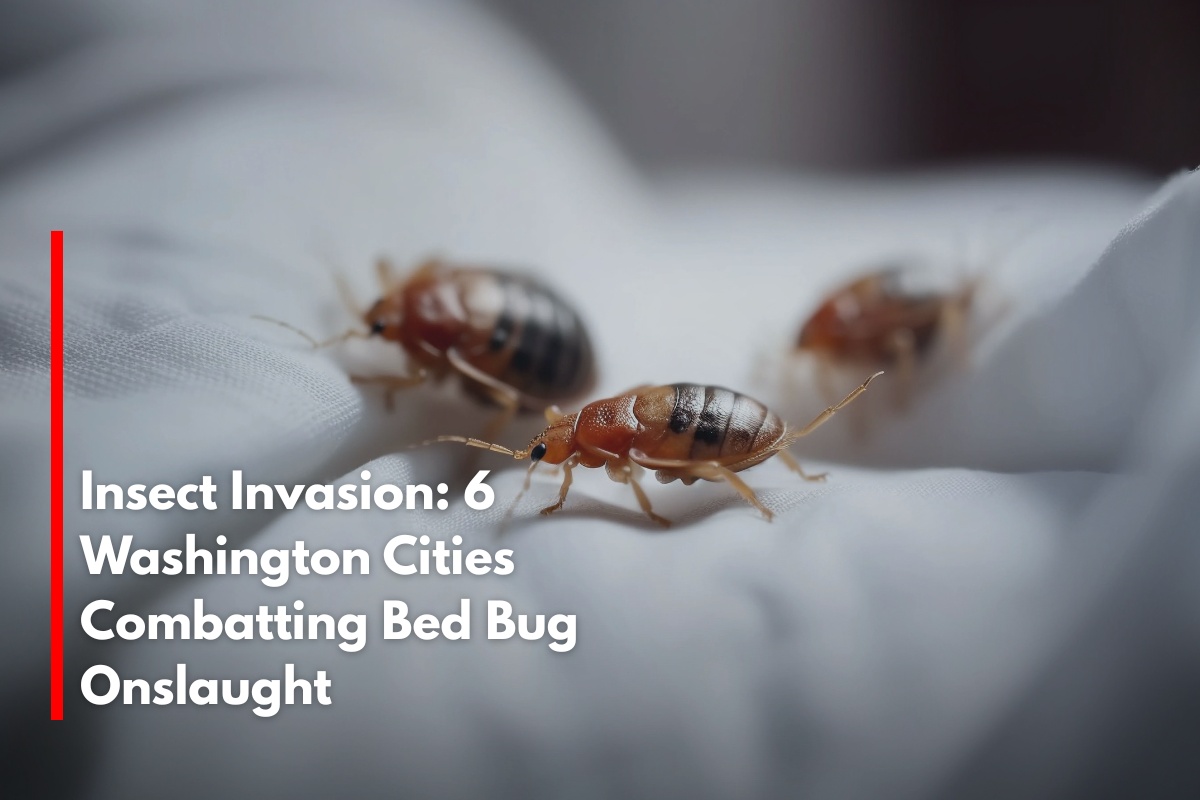Washington state is facing a growing problem with bed bug infestations affecting residents across multiple cities in 2025. These small, elusive insects have become a persistent nuisance, posing both health concerns and economic burdens for homeowners, renters, and businesses alike. With warmer climates and increased travel fueling their spread, bed bugs are testing the resilience of communities throughout the state.
Top 6 Washington Cities Struggling with Bed Bug Problems
Based on recent pest control industry data and public health reports, the following six Washington cities are among those most affected by bed bug outbreaks:
Seattle
Seattle, as the largest city, experiences the highest number of infestations. Urban density and abundant travel hubs contribute to frequent bed bug introductions and rapid spread.
Tacoma
Tacoma has seen a significant rise in cases, particularly in multifamily housing units and shelters where close living quarters make control difficult.
Spokane
Spokane has reported infestations in both residential neighborhoods and hospitality venues, with community awareness campaigns ramping up to combat the issue.
Everett
This city’s growing population and rental market have unfortunately made it a hotspot for bed bugs, prompting local interventions to educate landlords and tenants.
Vancouver
Vancouver faces challenges in managing bed bugs in affordable housing complexes, where infestations can quickly impact multiple units.
Kent
Kent has reported increasing calls for professional pest control services, with coordinated efforts underway to contain outbreaks in densely populated areas.
Why Bed Bugs Are Thriving in Washington
Several factors contribute to the bed bug spike in Washington:
Climate: Milder winters and warmer temperatures aid bed bug survival.
Travel: Airports, hotels, and public transit provide pathways for bed bugs to hitchhike into homes.
Urban Density: High population density accelerates spread within apartment buildings and shelters.
Awareness Delays: Difficulty in early detection allows infestations to grow unchecked.
How Cities Are Fighting Back
Washington cities are employing multifaceted strategies to control bed bug populations:
Public Education: Campaigns inform residents on how to spot signs of infestation and prevent their spread.
Tenant-Landlord Cooperation: Encouraging communication and prompt treatment in rental properties.
Professional Treatments: Subsidized access to professional pest control services helps low-income families.
Inspection Programs: Building inspections, especially in shelters and public housing, aim to identify infestations early.
Support Services: Offering support resources for affected residents to minimize healthcare and housing impacts.
Tips for Residents to Prevent and Detect Bed Bugs
Residents in Washington are encouraged to:
Inspect hotel rooms and luggage when traveling.
Avoid placing personal items on beds or floors immediately.
Check mattress seams, headboards, and upholstered furniture regularly.
Launder clothing and bedding in high heat to kill bed bugs.
Report suspected infestations promptly to landlords or pest control professionals.
The bed bug problem across Washington’s cities is a growing public health and housing challenge in 2025. Through combined community efforts, increased education, and proactive pest control, these urban centers are working hard to push back against the tiny invaders and protect residents from their itchy, disruptive consequences.
Sources
(https://secretdc.com/worst-cities-for-bed-bugs-dc-2025/)
(https://www.orkin.com/press-room/worst-cities-for-bed-bugs-annual-rankings)
(https://www.frommers.com/tips/hotel-news/travelers-beware-these-u-s-cities-have-the-most-bed-bugs/)
(https://www.marthastewart.com/cities-with-highest-bed-bug-infestations-11768884)
(https://www.mypmp.net/top-50-most-bed-bug-infested-cities-in-the-u-s-revealed-by-terminix/)











